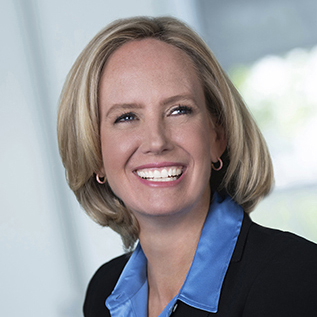Children deserve to learn in environments in which they have a sense of belonging—where they can truly develop their identities with adult support and deep relationships
Kelly Young, Founder and President, Education Reimagined
A few weeks before the end of the school year, I received some news that set my world into a bit of a frenzy. Acton Academy of Washington, DC, the learner-centered micro-school attended by Olivia, my daughter, was closing.
Why? The school lost much of its tuition base due largely to post-COVID challenges with its location in the Foggy Bottom area of Washington, DC. With residents leaving the city and people increasingly working from home, commuting to the school became untenable for several families, who then made other school choices, despite their underlying desire for this unique approach. Likewise, as more no or low-cost innovative options became more accessible, Acton DC was put at a competitive disadvantage. On top of all of this, the school experienced guide (educator) departures. Ultimately, they determined that they needed to shut their doors.
We’d made the choice for Olivia to attend Acton DC because it offered a unique opportunity, local to our family, for her to have a learner-centered experience. And she was thriving, building skills, agency, and a passion for learning that was powerful to witness. The fact that it was a tuition-based private option was a choice our family made for Olivia to have that experience.
Many powerful learner-centered education sites are private, tuition-based micro-schools. These beautiful learning environments are precious in their size, offering a deep level of engagement with other learners and adults. Being private isn’t necessarily their first choice. These models are simply seeking the space to operate in ways that are at odds with the regulatory environment of standardized education and so, find it outside of the public system. And like operating in the public system leaves them constrained, being private leaves these schools at risk of shifts in enrollment, and volatile to resource issues in staffing, funding, and availability of space. It can seem like an impossible choice.
Nationwide, the overall demand for this deeper learning is on the rise. But on the ground level, these models face extreme vulnerability no matter the circumstances they are in. This is precisely why we need to build a new public infrastructure capable of withstanding these headwinds.
The Impact of the School’s Closure
For Olivia, her fellow learners, and all of the families, this closure hit hard. During the Zoom call to discuss the news, there was a very personal and passionate response from everyone impacted, including a lot of tears. Among its learners, this school enabled leadership, the joy of learning, and the ability to explore the real world, beyond the walls of school. In her first six weeks as a seventh grader, Olivia got certified to sail—learning on the Potomac River. She learned woodworking, rocket-making, and orienteering. She and her friends created a business and sold their products at a business fair in downtown DC.
Olivia was learning how to be a responsible member of a community and an independent learner. She learned that leading your own learning is not doing whatever you want, whenever you want. It’s about the responsibility of setting goals, creating the conditions to be successful, and leveraging the resources around her to solve problems when she is stuck. She loved going to school. In fact, most Sundays, she would have preferred to be at school than at home.
In the school’s final week, the learners presented a very poignant presentation of gratitude for what the school meant to them.
Moving Forward
The good news is that the families of the children impacted were able to rally fast. I’m happy to share that Olivia will be attending The Village School in Arlington, Virginia, beginning this Fall, with several of her dear friends. Like Acton, The Village School is entirely focused on developing agency in its learners. The young people are the architects of their own learning, via real-world experiences, developing skills and mindsets to enable them to contribute meaningfully to the world. With this move, educators from Acton will also have opportunities to continue their learner-centered work with an amazing team. So now, The Village School has doubled its size within a year, posing a different set of management challenges and opportunities for that team to accommodate this growth.
Still, this experience punctuated the need for community-based ecosystems of learning. If these learning environments were part of a fully functioning public ecosystem, not only would it not be all on the parents and educators to piece these opportunities together, but they would be equitably available to every child and family who wanted them.
Here’s what I took away from the experience:
- There is demand. First and foremost, children deserve to learn in environments in which they have a sense of belonging—where they can truly develop their identities with adult support and deep relationships. And one where they can challenge themselves to learn in contexts that matter to them, understand their purpose, and unlock skills needed to set and achieve their goals. Seeing how much having a learner-centered experience meant to the families of Olivia’s friends underscored to me the strong demand for learner-centered education—especially once you’ve experienced it.
- We have to focus on building sustainable, community-based infrastructure to anchor learner-centered education. In our vision of community-based ecosystems, Olivia’s school would be a home base for a broader ecosystem of learning. It wouldn’t itself be the epicenter of her learning. There’s only so much one micro-team of adults can do, especially to balance the enablement of learning with the management of schooling. In realizing our vision, there will be a community-based network: a) her home base—where Olivia’s advisory team and peers would connect daily on life, challenges, projects, and progress; b) learning hubs where she would dive deep into research, as well as academic and practical skill-building; and c) field sites where she would explore and develop projects in the real world that mean something to her and matter for her development. In other words, with a firm public infrastructure, this network would be vibrant with caring adults and interesting experiences. It would be designed and supported to sustain headwinds.
This work has always been personal to me because the promise of learner-centered education is what I want for my children—to develop into fulfilled, self-sustaining contributors to this world.
But this experience with Olivia’s school has made the need for community-based ecosystems even more important. Parents (including me) should not have to scramble to find opportunities for their children to experience joyful learner-centered education. And many parents don’t have the luxury, access, or knowledge of the opportunities that do exist or the funds if they aren’t public institutions.
Our team is working with visionaries around the country to explore ways in which these ecosystems can come to life. Within a very diverse set of communities, these leaders and inventors are setting their visions for what is possible and unearthing very specific infrastructure assets and needs around them. As we continue our work, this research and development is helping us set the stage for the broader realization of our vision in the coming years. My hope is that learner-centered opportunities like Olivia experienced are possible for all young people, and that the heartbreak she and her fellow learners went through is avoided by having a truly transformed public education system that supports thriving, robust, and vibrant learner-centered ecosystems in every community across the country.

